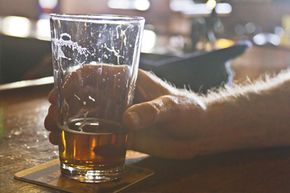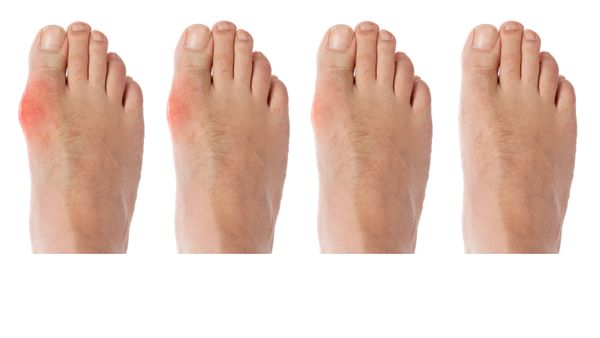Gout, though it's treatable and fairly easy to manage, is a condition you'd wish only on your worst enemy. A version of arthritis, it's characterized by sudden and severe joint pain, often in the base of the big toe. It disproportionately affects overweight men and the elderly, and cases have been growing steadily for the past 30 years. Attacks last only a few days, but after each incidence patients become increasingly prone to them. The most surefire ways to prevent gout attacks are weight loss, diet restriction and limited alcohol consumption.
The link between alcohol and gout has long been assumed -- doctors have been warning their gout patients of the dangers of drinking for years. Some forms of alcohol (namely beer) are high in purines, a chemical compound found in our bodies and in some foods that turns into uric acid when it's digested. The kidneys usually get rid of uric acid through urine, but if that doesn't happen for some reason -- if you're overloaded on purines or if your kidneys aren't functioning correctly -- the uric acid stays in your body. In some people, uric acid buildup forms crystals in the joints, which causes the excruciating pain of gout. Gout can also appear in the form of kidney stones and lumps under the skin.
Advertisement
Gout patients are also advised to avoid foods that are high in purines. Meats (bacon, beef, pork, lamb, organ meat and game) and seafood (anchovies, sardines, herring and scallops) are the main offenders, with dried beans and peas also making the list. Foods high in cholesterol, non-complex carbohydrates and saturated fats are others to avoid. Alcohol has always been a suspected culprit, but the connection with gout wasn't official until a 2004 study published in the medical journal The Lancet.
The study followed more than 47,000 men with no history of gout for 12 years, and it showed a direct correlation between gout and alcohol -- and, more specifically, beer. The men in the study who averaged only one 12-ounce beer a day increased their risk of gout by 1.5 times. Hard liquor caused less of an uptick, and wine barely registered at all [source: Choi]. The findings about beer weren't much of a surprise, but it was somewhat shocking to see such a relatively small amount of beer cause such a change in risk.
Before the study came out, it was commonly presumed that the main danger to gout patients was in heavy alcohol consumption -- drinking to the point where your kidneys excrete alcohol instead of uric acid. But now it seems that even moderate beer drinking can have the same effect.
Advertisement


